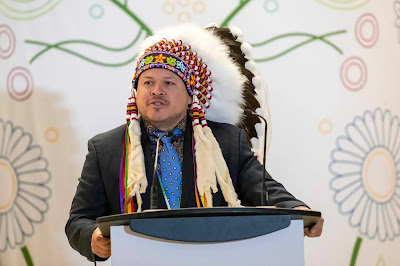Are Indigenous people in Canada the William Wilberforces of our time when it comes to the environment and protecting creation?
That’s what I ask in my most recent Free Press column, in response to a lawsuit filed by the Southern Chiefs’ Organization in Manitoba declaring Lake Winnipeg a person with constitutional rights to life, liberty and security of person.
That may strike non-Indigenous Canadians as unusual. That’s how some viewed Wilberforce 200 yearw ago, when he argued for an end to the slave trade in Great Britain. Opponents cited the negative economic consequences if it was ended. Some even used the Bible to justify its continuation.
Wilberforce was not swayed. Saying he felt called by God to end slavery, for 20 years he advocated tirelessly for an end to the buying and selling of human beings. In 1807, his efforts were rewarded when the slave trade was abolished in that country.
Today, Indigenous people are doing something similar, arguing that the earth has rights—just as Wilberforce argued that enslaved people had inherent rights, too. He concluded one speech about the horrors of slavery by telling his fellow Parliamentarians: “Having heard all of this, you may choose to look the other way. But you can never again say you did not know.”
Because of the Southern Chiefs, maybe when it comes to the health of Lake Winnipeg we can never say we didn’t know, either.
Photo above: Southern
Chiefs’ Organization Grand Chief Jerry Daniels. Credit Brook Jones of the Free
Press.

No comments:
Post a Comment